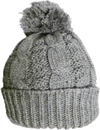I came across a word that particularly appealed to me in my Breton lesson today – zizolo (discovering) in the sentence Ar vro a zizolo bemdez en doare-se (He discovers the country every day in this way) – referring to Gwennole who goes cycling a lot. It is a mutated form of dizolo (to discover), and appeals to me because of the z’s and sound of the word.
The letter z is relatively rare in most of the languages I know, but is common in Breton and in the Pinyin for Mandarin Chinese. It gives words an interesting and unusual, almost exotic, look and sound, at least to my eyes and ears it does.
Do you notice some letters more than others? Are any letters exotic, unusual or unexpected to you?

